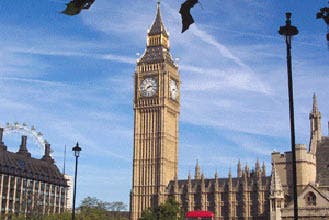London meeting to bolster Yemen in Qaeda fight
Obama approved secret operations in Yemen: report
A high-level international meeting in London on Wednesday aims to bolster Yemen's fight against al-Qaeda by helping it tackle the poverty that can create a breeding ground for militants.
British Prime Minister Gordon Brown hurriedly called the meeting after a Yemen-based al-Qaeda affiliate said it was behind a failed Dec. 25 attempt to blow up a U.S.-bound plane with 300 people on board.
The attack drove home how al-Qaeda could threaten Western interests from Yemen and highlighted the risk that the country could become a failed state, compounding security challenges already posed by lawless Somalia just across the Gulf of Aden.
"Rising on the radar"
British Foreign Secretary David Miliband said Sunday that Yemen "has been rising on our radar for the last 18 months to two years", but its troubles only made headlines in December, when Omar Farouk Abdulmutallab allegedly tried to detonate explosives in his underwear on a plane approaching the U.S. city of Detroit.
President Barack Obama has accused al-Qaeda in the Arabian Peninsula of training, equipping and directing the suspect, while al-Qaeda chief Osama bin Laden on Sunday claimed responsibility for the plot -- and vowed further strikes.
Wednesday's meeting, which brings together the Group of Eight world powers, Yemen's neighbors in the Gulf Cooperation Council, as well as Egypt, Jordan and Turkey, is designed to give a strong signal of support to Yemen, while pushing for economic development and reform.
The European Union, United Nations, World Bank and International Monetary Fund (IMF) will also be represented.
"Yemen is not a failed state but it's an incredibly fragile state," British Foreign Office Minister Ivan Lewis said in a video on a government website.
"We want to get in there early to offer assistance and to prevent Yemen becoming a failed state," he said.
The meeting, scheduled to start at 1600 GMT and last just two hours, would focus on helping the Yemeni government move its economy forward, creating jobs and improving health, education and law and order, he said.
Western delegates will also be pushing Yemen to press ahead with economic reforms and to tackle corruption.
Yemen is not a failed state but it's an incredibly fragile stateBritish Foreign Office Minister Ivan Lewis
War on al-Qaeda
Yemen has declared war on al-Qaeda under pressure from Washington and Saudi Arabia, its oil-producing neighbor and its main aid backer along with the United States.
Apart from al-Qaeda, Yemen faces a Shiite revolt in the north, a secessionist movement in the south, water shortages, failing oil income and weak state control.
Secretary of State Hillary Clinton will head the U.S. delegation. Many of the ministers will also take part in a major international conference on Afghanistan on Thursday.
Britain raised its terrorism threat level after the failed Detroit attack to "severe", meaning an attack in Britain is considered highly likely, and has suspended direct flights from Yemen. Security will be intense for this week's meetings.
Yemeni Foreign Minister Abubakr al-Qirbi told Reuters in an interview Yemen risked becoming a failed state unless the world helped develop its economy to give young people alternatives to a path of Islamist radicalization.
Qirbi said earlier this month Yemen needed about $4 billion a year in economic aid, but the London meeting is not intended to be an aid-pledging conference.
A donors' meeting in London in 2006 pledged about $5 billion for Yemen but only a small portion has been disbursed, partly because of concerns about how the money would be spent.
U.S. officials have said President Barack Obama's administration plans to couple expanded military support for Yemen to fight al-Qaeda with an economic assistance program designed to curb the appeal of Islamists.
U.S. secret operations in Yemen

The Washington Post reported that Obama has approved secret joint U.S. military and intelligence operations with Yemeni troops that began six weeks ago and killed six regional al-Qaeda leaders,.
Obama approved a Dec. 24 strike against a compound where a U.S. citizen, Anwar al-Aulaqi, was believed to be meeting with regional al-Qaeda leaders, the newspaper said in its Wednesday editions.
He was not the target and was not killed but since has been added to a short list of U.S. citizens to be killed or captured by the U.S. military's clandestine Joint Special Operations Command, military officials told the Post.
The United States is also sharing highly sensitive intelligence with Yemeni forces, including electronic and video surveillance, three-dimensional terrain maps and analysis of al-Qaeda network, the Post said.
A Yemeni official was quoted as saying the two countries maintained a "steadfast cooperation in combating AQAP (al-Qaeda in the Arabian Peninsula), but there are clear limits to the U.S. involvement on the ground. Information sharing has been a key in carrying out recent successful counterterrorism operations."
